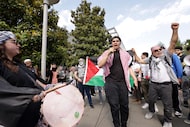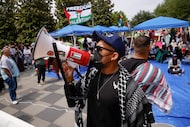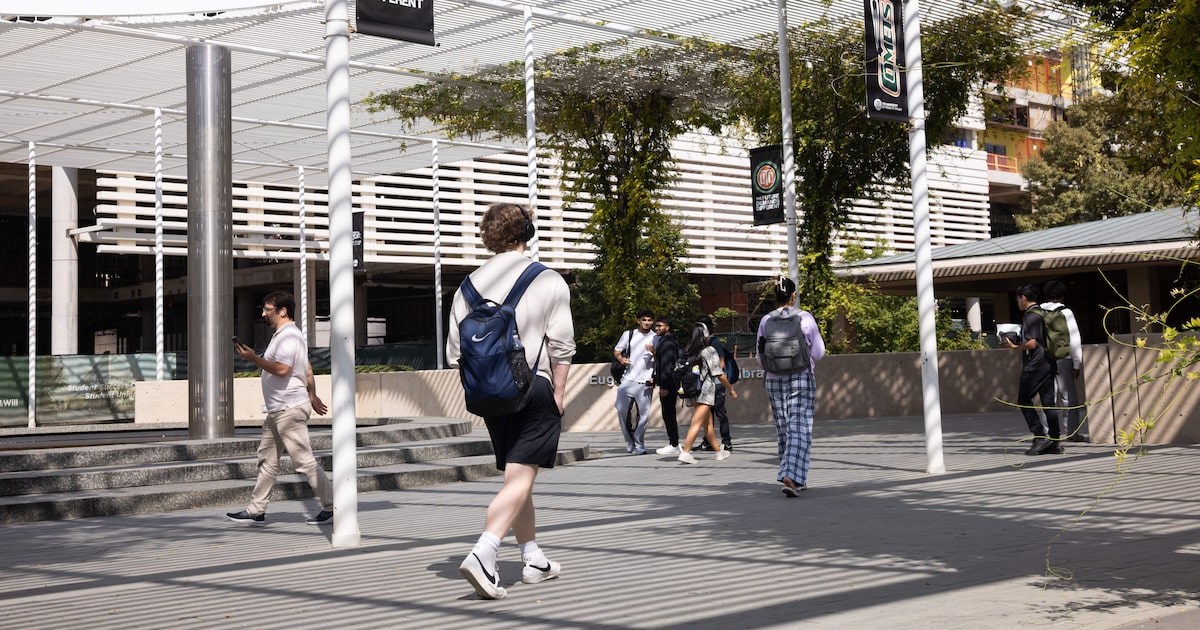A federal judge’s ruling Tuesday temporarily blocks the University of Texas System from implementing parts of a new state law that limits where and when students can engage in expressive activities on campuses.
U.S. District Judge David A. Ezra agreed with student groups from UT Dallas and UT Austin that the system’s implementation of the state law — which bans expressive activities overnight and restricts them in the last two weeks of the semester — likely violates their First Amendment rights.
Related

“The Court cannot trust the universities to enforce their policies in a constitutional way while Plaintiffs are left in a state of uncertainty, chilling their speech for fear that their expressive conduct may violate the law or university policies,” Ezra wrote in his ruling issuing a preliminary injunction.
The Education Lab
UT System spokesperson Randa Safady said the system could not comment on ongoing litigation.
“The UT System complies with the law and court orders,” Safady said in a statement.
Under the law that took effect Sept. 1, governing boards determine where protests can take place. Universities must prohibit protests or expressive activities from 10 p.m. to 8 a.m. During the last two weeks of a semester, expressive activities cannot include inviting speakers onto campus or using amplified speakers or drums.
“The First Amendment does not have a bedtime of 10:00 p.m.,” Ezra wrote. “The burden is on the government to prove that its actions are narrowly tailored to achieve a compelling governmental interest. It has not done so.”
The plaintiffs, which include a campus ministry group, a student-run newspaper, a percussion performance group and a live music student club, say the restrictions will affect how they operate on campus.
Gregorio Olivares Gutierrez, editor-in-chief of The Retrograde, said the student-run newspaper at UTD frequently reports on breaking news after 10 p.m. UTD’s Fellowship of Christian University Students would not be able to invite an off-campus minister to lead a prayer during finals.
“Texas’ law is so overbroad that any public university student chatting in the dorms past 10 p.m. would have been in violation,” said Adam Steinbaugh, a lawyer with Foundation for Individual Rights and Expression, which is representing the students. “We’re thankful that the court stepped in and halted a speech ban that inevitably would’ve been weaponized to censor speech that administrators or lawmakers found objectionable.”
Related

The new state law was a reaction to protests against the war in Gaza that occurred in May 2024, resulting in dozens of arrests at UT Dallas and UT Austin. Gov. Greg Abbott vowed to limit those protests after some students attempted to create camps akin to pro-Palestine protests outside of Texas that garnered national attention.
The law reverses a 2019 law that required universities to allow anyone to protest on campus in common outdoor spaces. That law was created under the belief that conservative voices were being silenced on college campuses.
The DMN Education Lab deepens the coverage and conversation about urgent education issues critical to the future of North Texas.
The DMN Education Lab is a community-funded journalism initiative, with support from Bobby and Lottye Lyle, Communities Foundation of Texas, The Dallas Foundation, Dallas Regional Chamber, Deedie Rose, Garrett and Cecilia Boone, Judy and Jim Gibbs, The Meadows Foundation, The Murrell Foundation, Ron and Phyllis Steinhart, Solutions Journalism Network, Southern Methodist University, Sydney Smith Hicks, and the University of Texas at Dallas. The Dallas Morning News retains full editorial control of the Education Lab’s journalism.

